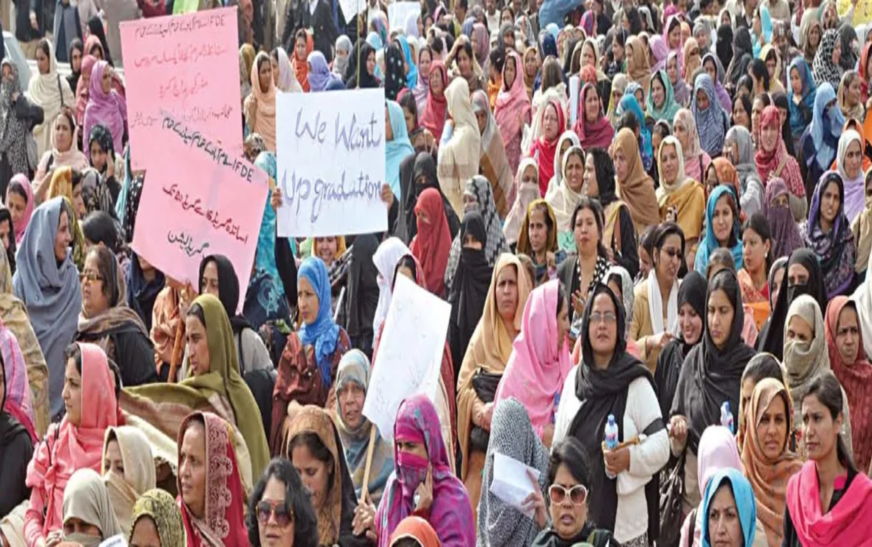The Punjab Department of Education has suspended the presidents and secretaries of the Punjab Teachers Union and the Educators Association, intensifying the ongoing conflict over the government’s privatization plans for schools.
Show-cause notices have been issued to key leaders of both associations, with legal proceedings initiated against prominent figures including Qazi Imran, Malik Amjad, Akhyan Gul, and Raja Taimoor Akhtar.
In response, teachers across Punjab launched a province-wide strike on Tuesday, shutting down schools and bringing government-run education to a standstill. The protests come as teachers’ unions rally against the privatisation initiative, which they claim will erode public education and threaten job security.
Government defends privatisation
The Chief Executive of the Education Authority has warned teachers to end the strike immediately and return to their duties. Despite the warning, unions remain defiant, refusing to yield to what they describe as an attempt to dismantle the public education system. Teachers’ organisations have called for an urgent meeting of the Grand Teachers Alliance to plan further escalations.
Read More :Punjab imposes social media ban on teachers and school heads
The privatisation initiative is a key component of the Punjab government’s broader strategy to transfer control of 13,219 schools to private entities. The third phase, slated for early September, will see the privatization of 2,903 additional schools, leaving just 35,000 under government management. By 2025, the government intends to privatize a total of 15,000 more schools.
Chief Minister Maryam Nawaz has defended the controversial plan, asserting that privatisation will modernize school infrastructure and improve academic outcomes. However, teachers’ unions argue that it will degrade the quality of education while compromising the job security of thousands of educators.
The dispute coincides with a poor response to the government’s admission drive. The first phase, which ran from February to May, recorded a record-low enrollment rate. Early results from the second phase, which commenced after the summer break on August 15, have similarly been disappointing, further fueling the unrest.















